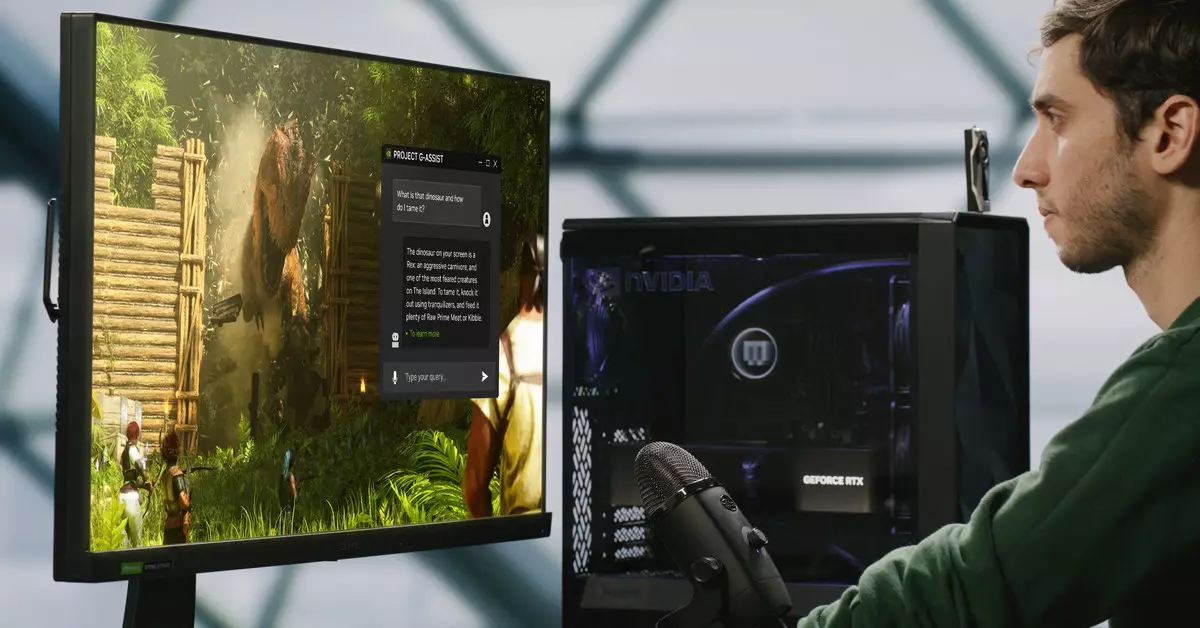Nvidia recently showcased Project G-Assist, a powerful AI assistant designed to help gamers navigate through PC games and optimize their settings. Originally introduced as an April Fools’ joke in 2017, G-Assist has now evolved into a real demo that could potentially be integrated into gaming experiences for RTX GPU owners. The AI assistant is capable of responding to voice queries and adapting to the player’s progress in a game, offering guidance on in-game tasks and recommending performance optimizations.
In a similar vein, Microsoft has also unveiled its vision for an AI assistant called Copilot, aimed at assisting Minecraft players with gameplay. This demonstration showcases the potential for AI to enhance the gaming experience by providing real-time guidance and suggestions to players. Both Nvidia and Microsoft’s initiatives suggest a growing trend towards the integration of AI assistants in gaming to offer personalized support and improve overall performance.
One of the key features of these AI assistants is their ability to analyze a player’s system and recommend optimizations for an enhanced gaming experience. From adjusting display settings to overclocking GPUs, these assistants aim to streamline the process of fine-tuning gameplay performance. By providing insights into latency, frame rates, and hardware capabilities, players can make informed decisions to maximize their gaming experience.
While the concept of AI assistants in gaming holds promise for enhancing player experiences, there are concerns regarding their reliability and accuracy. The demonstration of G-Assist and Copilot offers a glimpse into the future of gaming support, but the actual implementation and effectiveness of these assistants remain to be seen. As AI technology continues to evolve, there is potential for AI assistants to become invaluable tools for gamers, offering real-time assistance and personalized recommendations.
As Nvidia and Microsoft pave the way for AI integration in gaming, it is likely that we will see more developments in this space in the coming years. The transition from tech demos to real-world applications is inevitable, as advancements in AI technology enable more sophisticated gaming experiences. While skepticism is warranted given the challenges of generative AI, the growing interest in AI assistants in gaming indicates a shift towards a future where personalized support and optimization are key components of the gaming landscape.


Leave a Reply